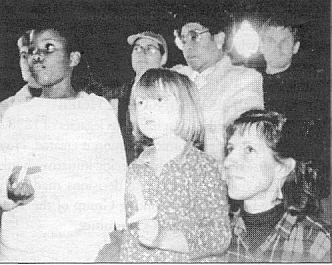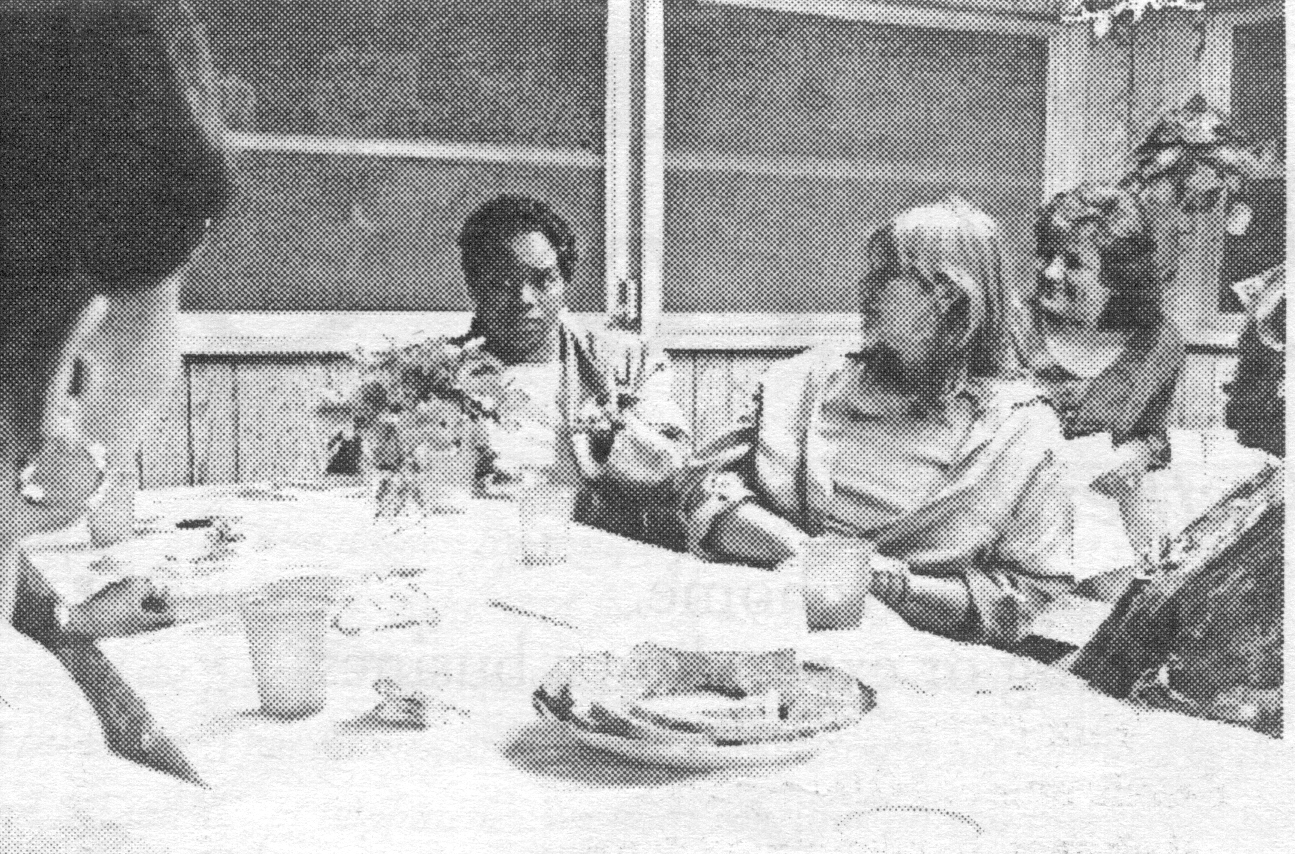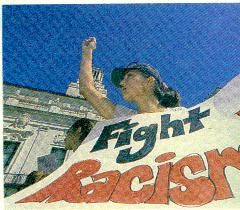Wilmington Tomorrow:
HEALING THE WOUNDS
The task of "healing the wounds" through dialogue aimed at understanding and reconciliation was the second key element in the process the 1898 Foundation resolved upon, to refound our city on a racially inclusive, rather than exclusive basis.

A candlelight vigil, November 10, 1997
To meet this task, 1898 organized "interracial dialogue groups," involving over 300 participants, which met around the city during 1998. The groups met at least five times, for a two hour period, and discussed their own histories with race relations, the city's history, the policies that are employed in society in general and the workplace to counteract racial discrimination and misunderstanding, and what might be done in Wilmington to further racial reconciliation and progress. Several groups continued into 1999, and one led to the foundation of a community garden, which joined two racially separated neighborhoods. (For information on the Mercer/Wayne community garden, see the Programs section on the 1898 Foundation website.)
These groups were led by facilitators trained by Study Circles, a national organization aimed at fostering community dialogues, and utilized materials provided by Study Circles, though once started, the conversations took on a life of their own, as people, black and white, began to talk out their racial wounds and how they had found--and were still finding--healing. The groups were racially balanced. (For more on the dialogues they sponsor nationally, see the Study Circles website listed in Acknowledgements, Books and Resources.)

Interracial dialogue is a key to community progress
In 1999, plans have been made to continue the interracial dialogues, through a cooperation between the 1898 Foundation and the Wilmington YWCA, which has as one of its national mandates the fight against racism. The YWCA will administer the dialogue sessions, coordinating times and places and membership, and the 1898 Foundation will continue to enlist participation in the dialogues through the organizations and institutions it is in contact with throughout the city.

The YWCA is committed
It is easy to underestimate the power of dialogue for racial understanding and healing. Many of the participants in the dialogues found themselves moved, shaken, and changed by their experience.
return to Table of Contents
link to 7.3:
HONORING THE MEMORY